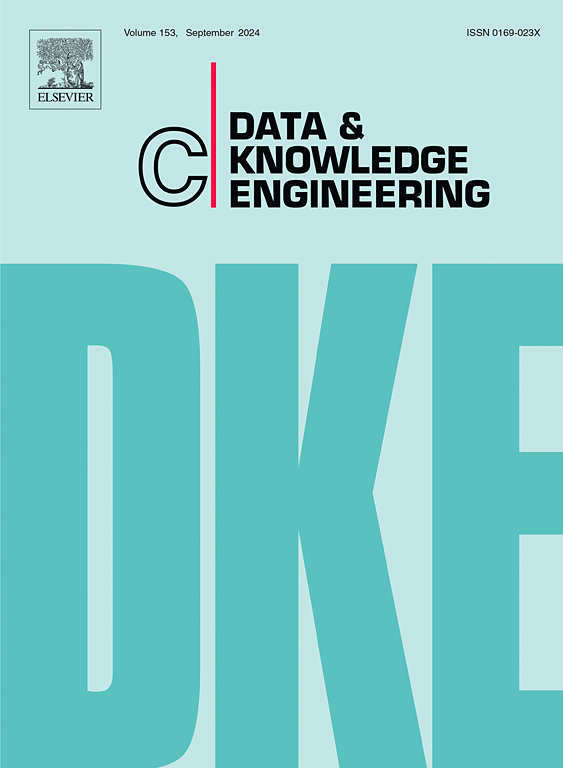提升NLP中的人机协作,以增强内容创建和决策支持
IF 2.7
3区 计算机科学
Q3 COMPUTER SCIENCE, ARTIFICIAL INTELLIGENCE
引用次数: 0
摘要
自然语言处理(NLP)中的人机协作通过无缝结合两个实体的优势来提高效率和质量,从而彻底改变了内容创建和决策支持。在NLP中,人类创造力和机器效率之间缺乏无缝集成,阻碍了最佳的内容创建和决策支持。本研究的目的是探索和促进NLP中人机协作的集成,以增强内容创建和决策支持过程。NLP请求的数据获取包括定义任务和目标受众,识别文本文档和网络数据等相关数据源,并通过验证和注释结合人类专业知识进行数据管理。机器处理技术,如标记化、词干/词法化和删除停止词,以及人工输入任务,如数据注释和纠错,以提高NLP应用程序的数据质量和相关性。自动化处理和人工反馈相结合,效果更加精确和可靠。利用情感分析、主题建模和实体识别等技术从数据中提取有价值的感知,增强人与机器之间的协作。这些技术有助于简化NLP过程,并确保系统向用户提供准确和相关的信息。机器处理中对NLP模型的分析包括训练模型执行特定任务,如总结、情感分析、信息提取、趋势识别和创造性内容生成。结果显示,社交媒体以90%的使用率领先,这对受众参与度至关重要,而博客以78%的使用率突出了他们使用Python软件进行内容创作的深度。然后,这些经过训练的模型被用来改进决策过程,生成创造性的内容,并提高搜索结果的准确性。未来的范围包括利用先进的自然语言处理技术来深化人与机器之间的合作,以更有效地创建内容和决策支持。本文章由计算机程序翻译,如有差异,请以英文原文为准。
Elevating human-machine collaboration in NLP for enhanced content creation and decision support
Human-machine collaboration in Natural Language Processing (NLP) is revolutionizing content creation and decision support by seamlessly combining the strengths of both entities for enhanced efficiency and quality. The lack of seamless integration between human creativity and machine efficiency in NLP hinders optimal content creation and decision support. The objective of this study is to explore and promote the integration of human-machine collaboration in NLP to enhance both content creation and decision support processes. Data Acquisition for NLP requests involves defining the task and target audience, identifying relevant data sources like text documents and web data, and incorporating human expertise for data curation through validation and annotation. Machine processing techniques like tokenization, stemming/lemmatization, and removal of stop words, as well as human input for tasks like data annotation and error correction, to improve data quality and relevance for NLP applications. The combination of automated processing and human feedback leads to more precise and dependable effects. Techniques such as sentiment analysis, topic modelling, and entity recognition are utilized to excerpt valued perceptions from the data and enhance collaboration between humans and machines. These techniques help to streamline the NLP process and ensure that the system is providing accurate and relevant information to users. The analysis of NLP models in machine processing involves training the models to perform specific tasks, such as summarization, sentiment analysis, information extraction, trend identification, and creative content generation. The results show that social media leads with 90% usage, pivotal for audience engagement, while blogs at 78% highlight their depth in content creation implementation using Python software. These trained models are then used to improve decision-making processes, generate creative content, and enhance the accuracy of search results. The future scope involves leveraging advanced NLP techniques to deepen the collaboration between humans and machines for more effective content creation and decision support.
求助全文
通过发布文献求助,成功后即可免费获取论文全文。
去求助
来源期刊

Data & Knowledge Engineering
工程技术-计算机:人工智能
CiteScore
5.00
自引率
0.00%
发文量
66
审稿时长
6 months
期刊介绍:
Data & Knowledge Engineering (DKE) stimulates the exchange of ideas and interaction between these two related fields of interest. DKE reaches a world-wide audience of researchers, designers, managers and users. The major aim of the journal is to identify, investigate and analyze the underlying principles in the design and effective use of these systems.
 求助内容:
求助内容: 应助结果提醒方式:
应助结果提醒方式:


